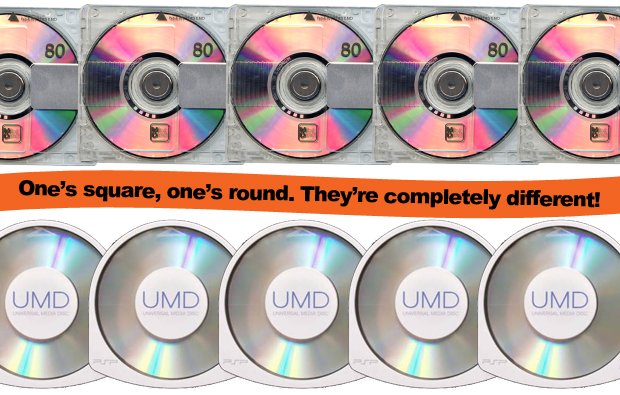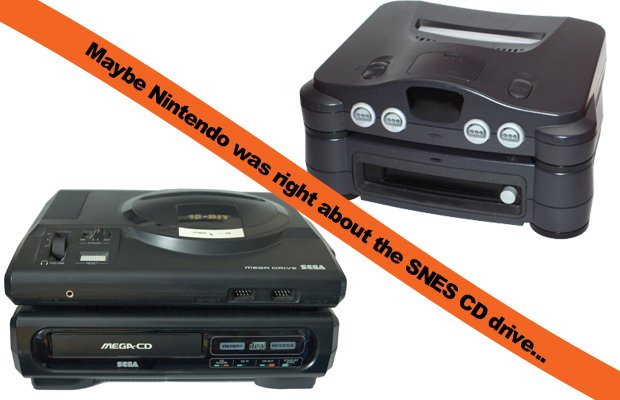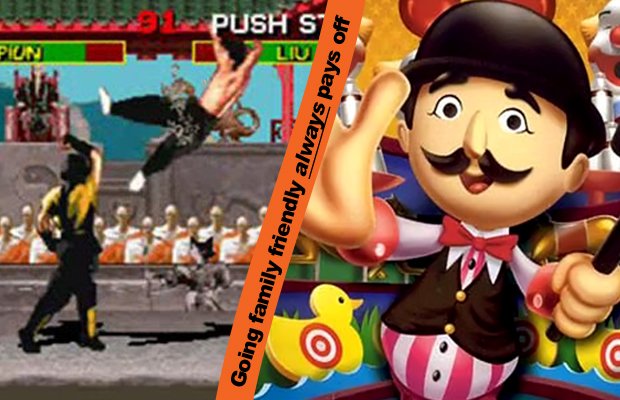6 games industry mistakes absolutely no-one learned from
Time flows like a river and history repeats...
Made by: Sony
Should have learned from: Sony, Nintendo
The original mistake(s): When everyone else was switching to the cheaper, bigger, more efficient medium of CDs, stubborn old Nintendo insisted on sticking with bulky, expensive, high-capacity cartridges for the N64. Cartridges they manufactured themselves, which bumped the cost of games right upfor both devs and gamers. Cartridges which didn’t have the capacity to live up to contemporary developers’ ambitions. Third-party support, oh how it did nosedive.
And then the Gamecube came around and Nintendo embraced shiny discs. But they were tiny plastic biscuits, based on the MiniDVD design but again, a proprietary Nintendo format. Used partially to avoid DVD licensing fees, they lacked the full capacity of the proper, grown-up DVDs used by the Xbox and PS2, forcing compressed video and audio and the use of multiple discs on big games. Again, costs went up, and again, no-one was really impressed.

And in 1992, Sony launched the MiniDisc, a new digital format intended to take the media world by storm. But with little and short-lived music industry support, and little demand from the public, it tanked.
The new mistake: While Nintendo was realising that the smaller, battery-friendly, more efficient medium of mini cartridges was still the best format for handhelds, stubborn old Sony insisted on another new format. One that looked suspiciously similar to a baby MiniDisc. It was called the UMD and promised to take the media world by storm, bringing both games and films to the PSP. But it gobbled batteries, and with little and short-lived film industry support, and little demand from the public, it tanked. And now the newest PSP doesn’t even use it for games.
Forgettingconsole add-ons are expensive and annoying
Made by: Nintendo
Weekly digests, tales from the communities you love, and more
Should have learned from: Sega
The original mistake: During Sega and Nintendo’s last great console war, the House of Hedgehogthrew every bit of tech it could think of at Nintendo in an attempt to make the Mega Drive appear increasingly more powerful and relevant. First up was the Mega-CD add-on, which gave the MD a metric shedload more storage capacity, and should have heralded an era of gen 1.5 gaming. Then around the time of the Saturn’s launch, it made a Frankensteinian resuscitation attempt on the flailing old black box with the 32X, a plug-in that boosted the Mega Drive’s processing grunt and allowed proper 3D games. Well we say ‘proper’. They actually looked a bit crap.
What did these add-ons achieve? Bugger all. They just split the market, reducing the number of copies any game using them could sell and - particularly as the 32X competed with Sega’s own real next-gen machine - confused the merry hell out of consumers.

The new mistake: Having seen Sega’s errors the previous generation, Nintendo immediately forgot all about them and repeated almost the exact same ones with the Nintendo 64. The RAM-boosting Expansion Pak (Ninty’s spelling, not ours) cranked up visual capacity but split devs and gamers; some gameswere gimped without it and a fewrequired the unit to even run. And then, there was the poor, beaten, ginger stepchild was the 64DD.
Announced before the console’s launch, this higher capacity disc drive was eventually shuffled out towards the end of the N64’s life when it was all frankly too late. It gained miserable support, and after years of hype-trumpeting didn’t even manage a release outside of Japan. To this day, if you go out at the right time on a Friday night, you can find it getting drunk with the 32X under one of Kyoto’s railway bridges.
Made by: Nintendo
Should have learned from: Nintendo
The original mistake(s): Nintendo has never been good with third-party developers. Well hey, it’s not like they’re that important is it? After all, what do they really do, other than provide all that attractive exclusive software support that separates your console from the competition? Hangers-on and time-wasters, the lot of them.
Back in the NES days, it was all about uber-restrictive content guidelines. On the SNES, it was the same, until the Nintendo version of Mortal Kombat sold like herpes cake. N64, crap expensive cartridges. Nintymade more of an effortwith the Gamecube, and got some generation-defining exclusives like Resident Evil 4 and Eternal Darkness, but by then it was all a bit too late. Its market share was just too low for many devs to care. But hey, Nintendo could turn things around if it somehow managed to start selling a shit-ton of consoles, right? If only there was a way that could happen…

The new mistake: When the Wii started selling exactly that shit-ton of consoles, it seemed for a while like Nintendo was going to eat the whole industry. It was back on top like it had been with NESes both normal and Super. It had a new experience everyone wanted to get in on. Game development costs on its machine were way lower than the trouser-troubling budgets devs were already suffering with the HD machines. Finally, Nintendo had the full package. It was actually going to get it right this time. Look! Look, can you see it happening!
Well 30 seconds later, no, noyou couldn’t see it any more. Because Nintendo pushed its entire market towards grannies, and suddenly it had even less of a haven for hardcore devs than ever. And with low development costs and absolutely no Nintendo quality control, that market was immediately flooded with enough low-grade pap to choke Godzilla. With a lack of hardcore gamers and a glut of rubbish competition, developers once again headed to the safe hills of Nintendo’s rivals, and the situation still hasn’t righted itself.
But what you do you think? Is the games industry doomed to repeat the same mistakes over and over again? And why does it keep doing it? Are there any other repeated howlers that make you facepalm whenever you think about them? Let us know in the comments, or via our throbbing social opinion-holes onFacebookandTwitter.
*The first person to correctly identify this quotation automatically becomes my favourite reader of the day. There is no prize, but be safe in the knowledge that you have won nonetheless.



